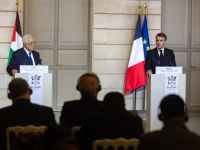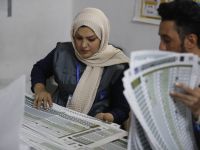Beirut newspapers said Friday the new national government showed strong Syrian intervention and lacked proper Christian representation, but still respected the balance of power in the country.
The French-language L'Orient-Le Jour said in an editorial the cabinet formed Thursday by Prime Minister Rafiq Hariri "differs little in its political profile from the previous ones."
"However, it is charaterized by an undoubted Syrian influence. Everything leads to believe that the government was prepared in close collaboration with the Syrian 'tutor,'" the paper said.
The daily, which said "equilibrium was respected in the shares granted to the poles of power," nonetheless regretted the "exclusion of Christian parties and movements."
"It is an imbalance which proves that the 'decision-makers' (the Lebanese but mainly the Syrians) still do not have the will to put the country on the road to internal dialogue to pave the way for a true national reconciliation."
It was referring to Hariri' declaration late Thursday that the government was one of national unity.
The liberal An Nahar newspaper said the balance of power was respected and many parties were represented, "but not the (Christian) Kataeb or any other Christian oppositon groups."
Gibran Tueini, the paper's chairman and director general, said "we see that time has not come for a true national unity and reconciliation and for a true solution in Lebanon.
"But we do not blame (Hariri and President Emile Lahoud) because it appeared to us -- and them -- that the decision to achieve national reconciliation is not taken in Baabda (presidential palace) or Kraytem (Hariri residence), but somewhere else, probably at the borders or beyond the borders," he said referring to powerful neighboring Syria.
The English-language The Daily Star newspaper said the "noticeable effort to improve Christian representation was evident. But some of the political factions essential to the consolidation of national consensus were left out, including the Phalange party (Kataeb)."
The paper's editorial wondered if "maybe someday Lebanon will choose its leaders independently of another country's myopic appreciation of its own priorities, and perhaps both will be healthier for it" -- BEIRUT (AFP)
© 2000 Al Bawaba (www.albawaba.com)







